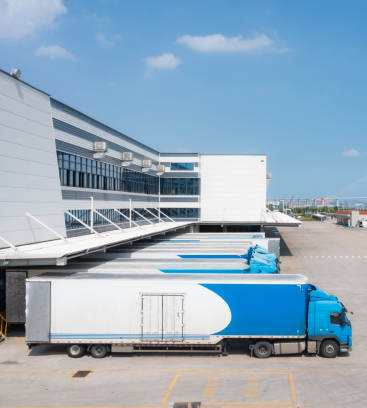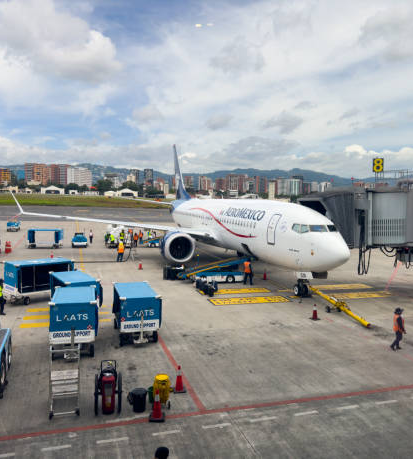
G-Billion Logistics nabízí osobní přístup k globální expresní přepravě, s celosvětovým dosahem, který pokrývá každý kout světa. Když potřebujete důvěryhodného partnera pro vaše potřeby globální expresní přepravy, G-Billion Logistics je tu pro vás. Jsme hrdí na náš závazek k dokonalosti, zajišťujeme, že vaše zásilka je zacházeno s nejvyšší péčí a doručena bezpečně a včas na její místo určení. S našimi odbornými znalostmi a závazkem k dokonalosti si můžete být jisti, že vaše zásilka je v dobrých rukou.

Když vaše podnikání vyžaduje rychlé a bezpečné mezinárodní dopravy, expresní letadla G-BILLION jsou ideálním řešením. Poskytujeme zákazníkům B2B rychlý, bezpečný a spolehlivý systém doručování, který splňuje vaše vysoké standardy. Bez ohledu na to, zda převážíte produkty nebo dokumenty, G-BILLION zajistí, aby se vaše balíčky dostaly na místo efektivně. Důvěřujte naší zkušenosti a oddanosti, abychom vaše převážky doručili rychle kamkoli na světě.

G-Billion Logistic má pověst spolehlivých a cenově dostupných globálních expresních přepravních služeb. Nešetříme na bezpečnosti, i když vám nabízíme nejlepší nabídku. Náš náklad je chráněn pomocí nejmodernějších bezpečnostních opatření. A vytvořili jsme jasnou cenovou strukturu, která vám pomůže lépe plánovat váš logistický rozpočet.
Díky našim strategickým partnerstvím s předními přepravci můžeme vyjednávat konkurenceschopné sazby, které hrají ve váš prospěch, aniž bychom ohrozili kvalitu služeb. Můžete být malá a střední podnik, jehož podnikání se rozšiřuje na mezinárodní trh, nebo nadnárodní společnost hledající distribuční partnery; naše globální expresní služby vám přinášejí klid a šetří vám peníze.

## Prostřednictvím G-Billion Logistics nezískáte pouze nejlepší globální expresní doručovací službu ve městě, ale také řadu přidaných hodnotových služeb, jako je pojištění, správa shody a sledování v reálném čase. Každou chvíli se snažíme být lepší než posledně, abychom zajistili, že vaše balíčky cestují napříč zeměmi bezpečně a včas. Náš odborný tým pro globální expresní služby vám může pomoci zvýšit vaše mezinárodní obchodování do neuvěřitelných výšin. Naše bezpečnostní opatření jsou na nejvyšší úrovni a přísně dodržujeme všechny mezinárodní předpisy, abychom zajistili, že každý předmět v naší péči dorazí na své místo určení.

G-Billion Logistics je jednou z futuristických přepravních služeb. Zjednodušili jsme naše expresní dodací služby. Po mnoho let jsme byli průkopníky v globální dopravě, a proto chápeme důležitost přesnosti a spolehlivosti.
Všechna naše celosvětová expresní řešení slouží různým sektorům. Poskytujeme zásilky od dveří ke dveřím, podporu celního odbavení a (aby jste nemuseli čekat) živé sledování. Ať už se jedná o dopis nebo velké zásilky, naše přizpůsobitelné globální expresní možnosti vám ušetří náklady.

SHENZHEN G-Billion Logistics LTD. (dále jen "GBL"), založená v Shen-zenu v roce 2023, je integrovanou platformou pro služby v oblasti mezinárodního exportního dodavatelského řetězce. S nezávisle vyvinutým, hluboce digitalizovaným systémem, který integruje logistiku, finanční služby, řízení rizik a spolupráci OA, GBL disponuje kvalitními leteckými kapacitami, dospělými dispatchingovými zdroji a rozmanitými produkty.
GBL je pozice jako „Tvůrce prvního mezinárodního exportního dodavatelského řetězce v Číně“, přičemž využívá IT technologie a digitalizaci jako jádrové pohonné síly. Vytváří model 4+1, který zahrnuje čtyři hlavní obchodní sektory – mezinárodní logistika, elektronický komerční obchod, cloudové skladování za hranicemi a financování dodavatelského řetězce – spolu s plně digitalizovanou platformou zaměřenou na podporu čínské výroby pro mezinárodní expanzi.
Máme globální síť partnerů a agentů, kteří vám mohou poskytnout spolehlivá a ekonomická logistická řešení. Ať už potřebujete dopravu letadlem, lodí, pozemním převodem nebo vícemodálně, můžeme to pro vás zařídit.
Máme tým odborníků, kteří vám mohou nabídnout přizpůsobené a pružné služby. Můžeme navrhnout a realizovat logistické plány, které vyhovují vašim konkrétním požadavkům, jako je správa skladu, skladování, distribuce, celní úpravy a další.
Máme moderní technologickou platformu, která vám umožňuje zvýšit přehlednost a kontrolu nad dodavatelskou řetězcí. Můžete sledovat své zásilky v reálném čase, přistupovat k datům a zprávám a komunikovat s námi kdekoli a kdykoli.
Máme zákaznickou kulturu, která dává přednost vaší spokojenosti a zpětné vazbě. Zavázali jsme se poskytovat vám služby vysoké kvality a reaktivní charakteru a jsme vždy připraveni řešit jakékoliv problémy nebo výzvy, které mohou vzniknout.
Globální expres je služba poskytovaná G-Billion Logistics, která nabízí rychlé a spolehlivé doručení zásilek po celém světě. Zajišťuje včasné doručení vašich zboží na jakékoli místo, bez ohledu na to, kde se nachází na světě.
Globální expres nabízí rychlost, pohodlí a spolehlivost. Poskytuje nákladově efektivní řešení pro mezinárodní přepravu zboží, s osobním přístupem a celosvětovým dosahem.
Výhody používání Globálního expresu zahrnují rychlejší dodací lhůty, službu od dveří ke dveřím, sledování a trasování během celé cesty a klid na duši, protože víte, že vaše zásilka je v rukou zkušených profesionálů.
Dodací lhůty se liší v závislosti na cílové destinaci a trase, ale obecně můžete očekávat, že svou zásilku obdržíte během několika dnů až několika týdnů. Poskytujeme sledování v reálném čase, abyste mohli být informováni o pokroku vaší zásilky.
Náklady na služby Globálního expresu se liší v závislosti na faktorech, jako je hmotnost a velikost vaší zásilky, cílová destinace a zvolená trasa. Poskytujeme konkurenceschopnou nabídku na základě vašich specifických požadavků.


